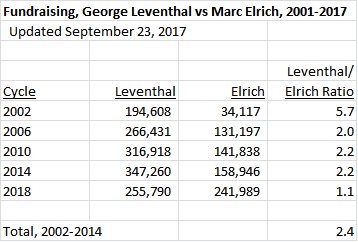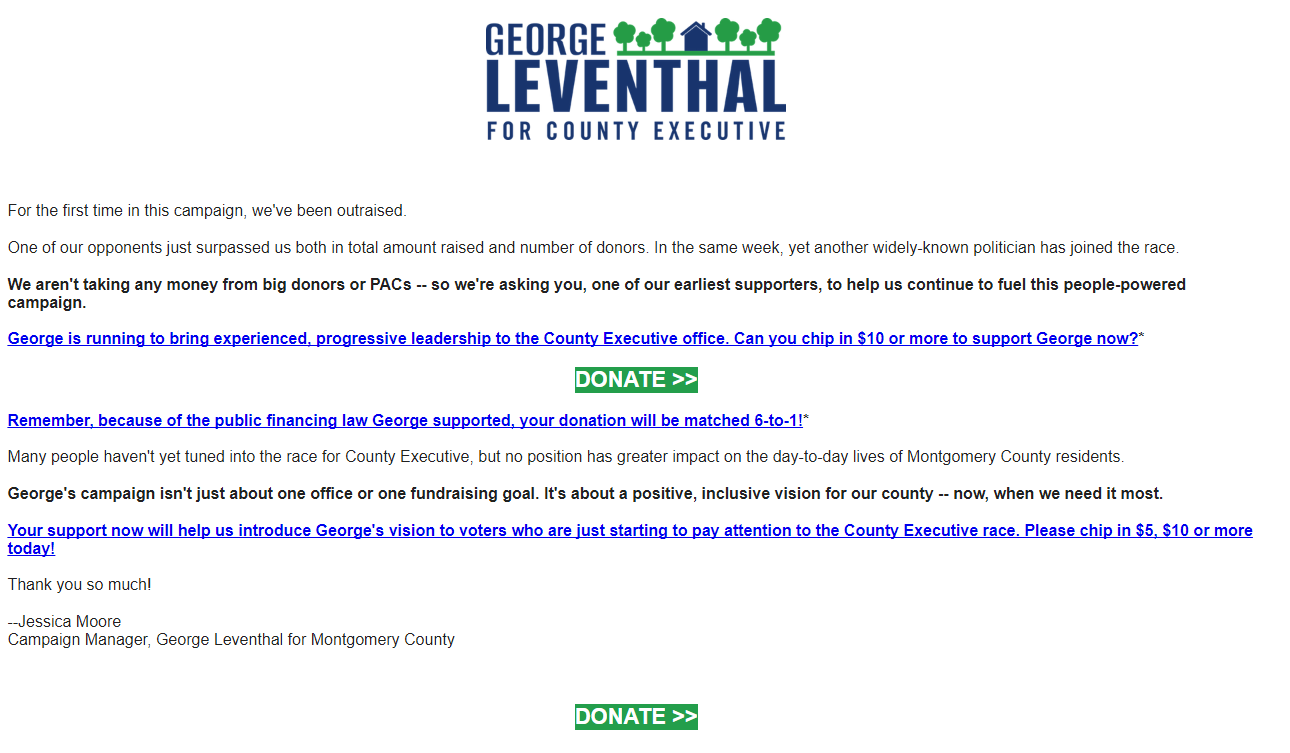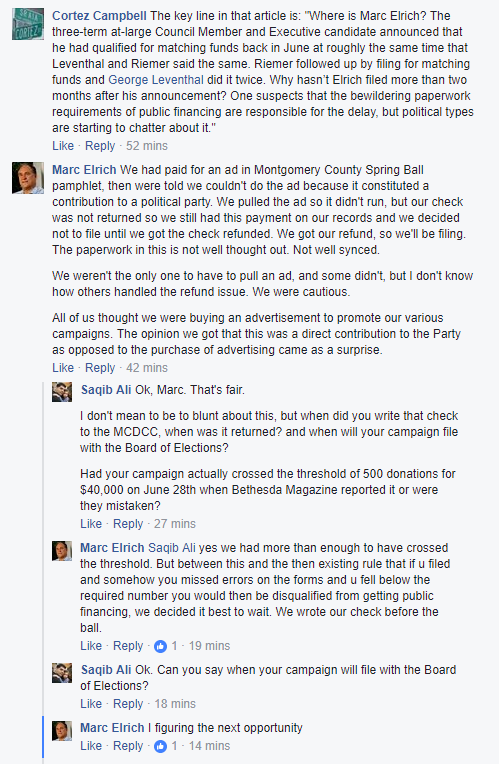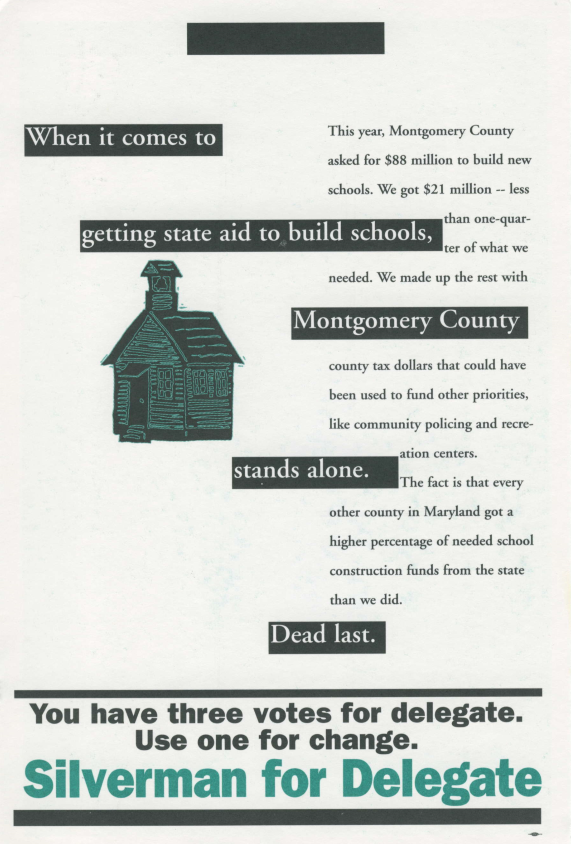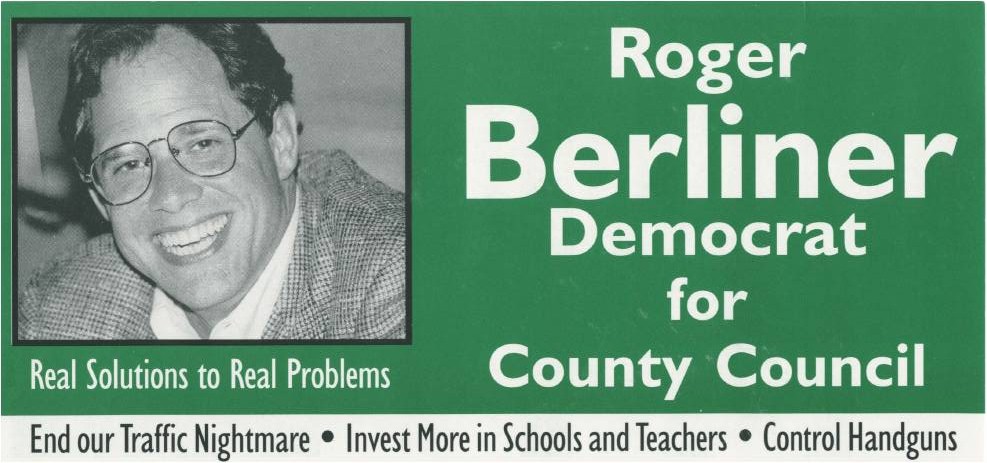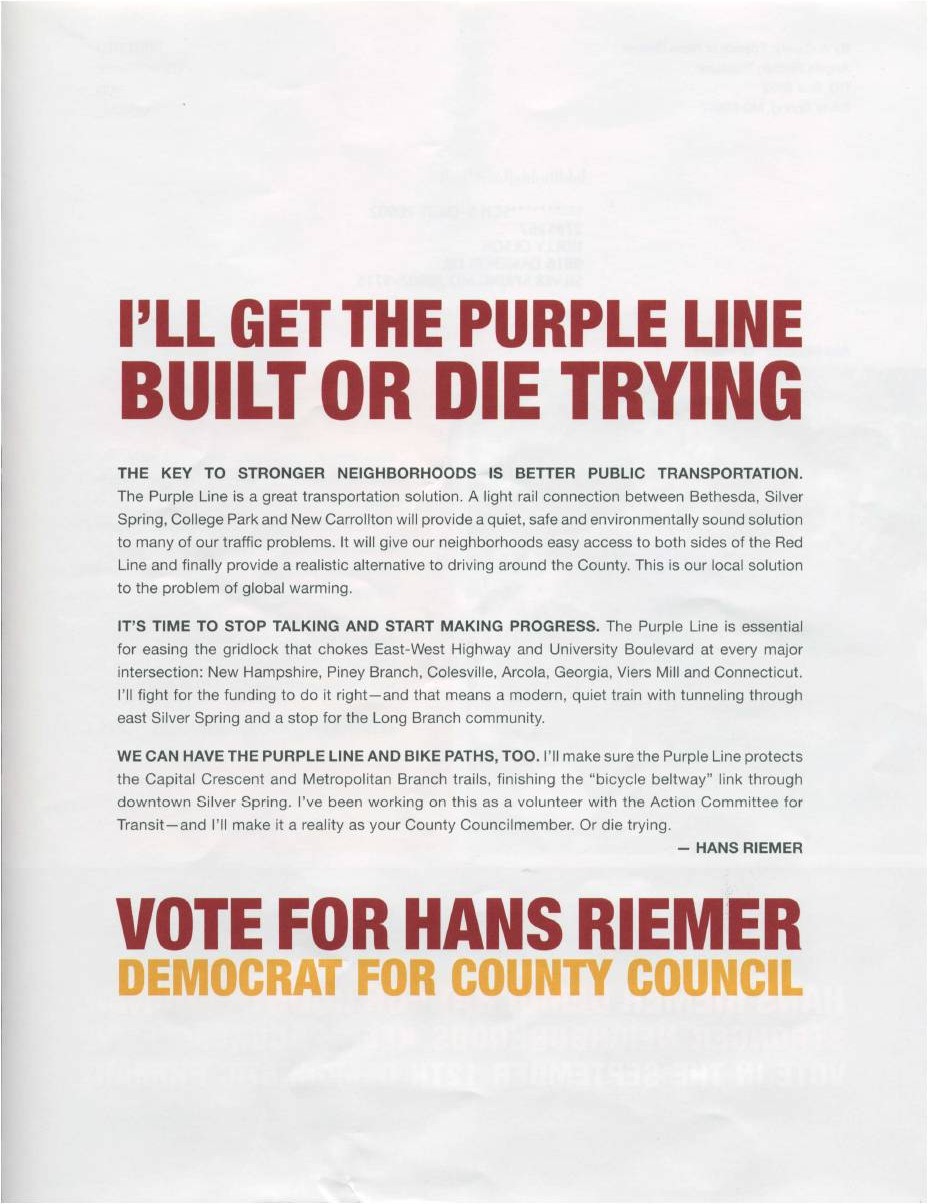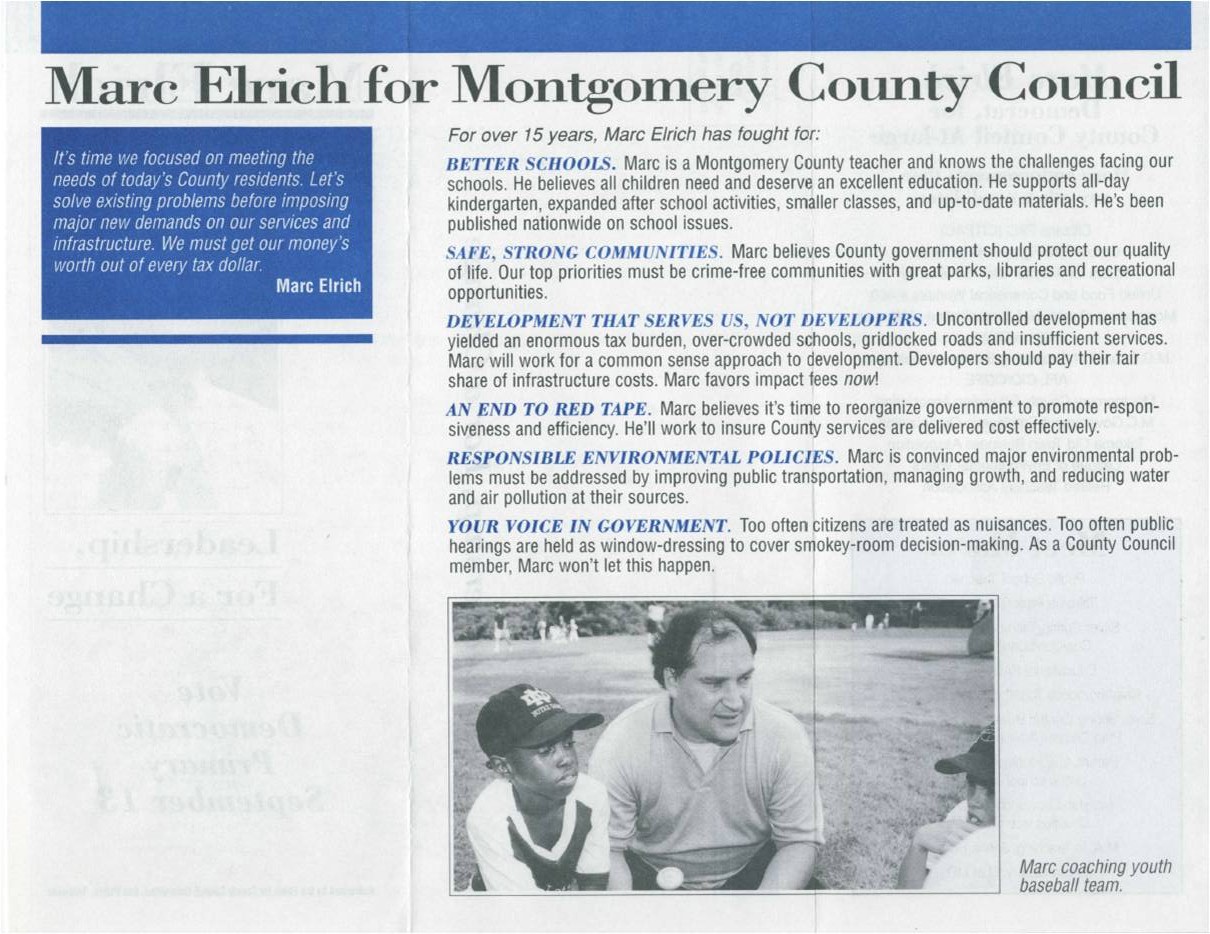By Adam Pagnucco.
Many things have happened over the last four election cycles, but one thing has remained constant: George Leventhal has smoked Marc Elrich in fundraising.
Not anymore.
Elrich, who is running against Leventhal, Roger Berliner and Bill Frick to be the next County Executive, just filed his first application for public financing matching funds with the state. So far, Elrich has more in-county contributors than Leventhal (693 to 590) and has raised more money from in-county individuals ($59,717 vs $46,128). But Leventhal has received more public funds, leaving him with a slight lead in total fundraising. Summary data for all qualifying publicly financed candidates appears below.
This is a dramatic turn of events from the past. Leventhal and Elrich first ran against each other in 2002 as members of slates headed by County Executive Doug Duncan and Council Member Blair Ewing respectively. Leventhal outraised Elrich by more than 5-1 that year and was backed by hundreds of thousands of dollars more in slate money from the real estate industry. Over the next three cycles, Leventhal raised about twice as much as Elrich.
But public financing has eroded Leventhal’s edge. That was predictable considering that both Leventhal and Elrich have had around 600 in-county individual contributors each in both the 2010 and 2014 cycles. The ability of a candidate to raise money in the public financing system depends solely on the number of in-county contributors he or she has. So if two candidates have similarly sized individual donor bases, they will raise similar amounts of money.
That fact is not lost on the Leventhal campaign, which sent out the fundraising email below shortly after seeing Elrich’s report.
Leventhal is right to be concerned about Elrich’s financial success. Leventhal finished fourth and Elrich finished first in the last two at-large council elections despite the fact that Leventhal outraised Elrich 2-1. What happens now when the two are at financial parity?


